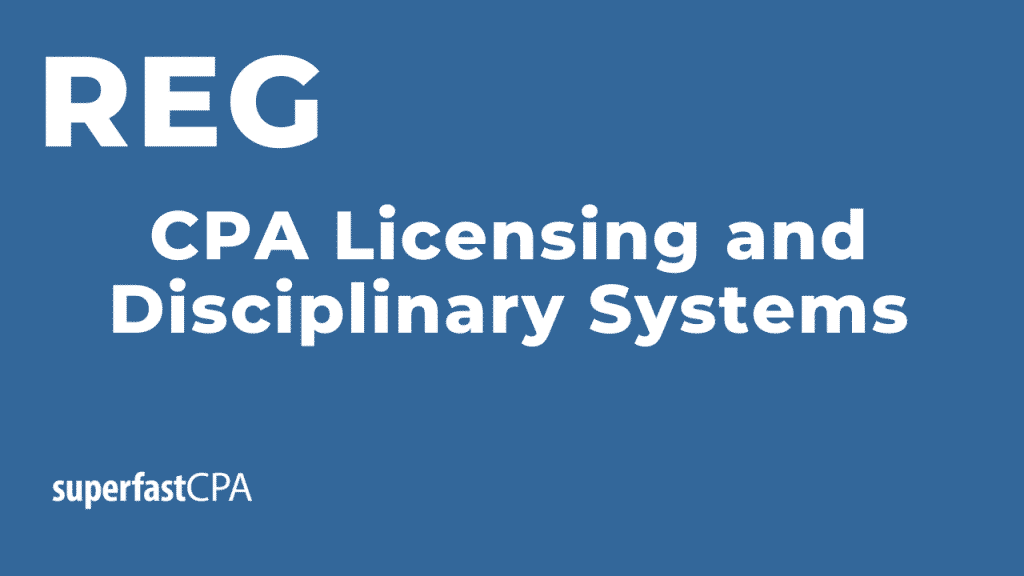The following is a summary of some of the CPA licensing and disciplinary systems you should be familiar with for the REG CPA exam.
Table of Contents
State Boards of Accountancy
These are the boards of each state that govern the practice of CPAs within their jurisdiction. These are bodies that issue licenses to practice in their jurisdictions, so it is also up to the state board to revoke a CPA’s license to practice. The AICPA nor the PCAOB can directly revoke a CPA’s license to practice, this must be done by the CPA’s state board.
Each state board has the same general requirements to become a licensed CPA:
- 150 hours of college education. Most states now require a master’s degree
- State-specific ethics course
- Ongoing CPE
- Passing the CPA exams
- 2,000 hours of professional experience
Reasons State Boards Will Revoke CPA License
There are a number of reasons a state board will revoke a CPA’s license and possibly impose fines:
- Fraud in obtaining a certificate
- Failing to properly renew the CPA license
- If the CPA’s right to practice is revoked before a federal or state agency, such as the PCAOB
- Violation of professional standards
- Conviction of a felony or any crime involving dishonesty
- Dishonesty, fraud, or gross negligence while performing services for clients
- Failing to file the CPA’s own tax returns
The AICPA
The AICPA works closely with state boards of accountancy, but implementing and enforcing regulations is up to the individual state boards
The AICPA can’t directly revoke a CPA’s right to practice, but most state boards have rules that mirror the rules of the AICPA. This is why it’s important for CPAs to adhere to the rules of the AICPA. There is also the Joint Ethics Enforcement Program that involves joint enforcement of the AICPA’s and the state board’s ethics rules.
AICPA Suspensions or Expulsions
The AICPA will suspend or expel members without hearing for:
- Filing a fraudulent tax return
- If a state board revokes that CPA’s license to practice
- If the CPA is convicted of a crime punishable by imprisonment for 5 years (convicted of a felony)
- Failing to file their own tax return













